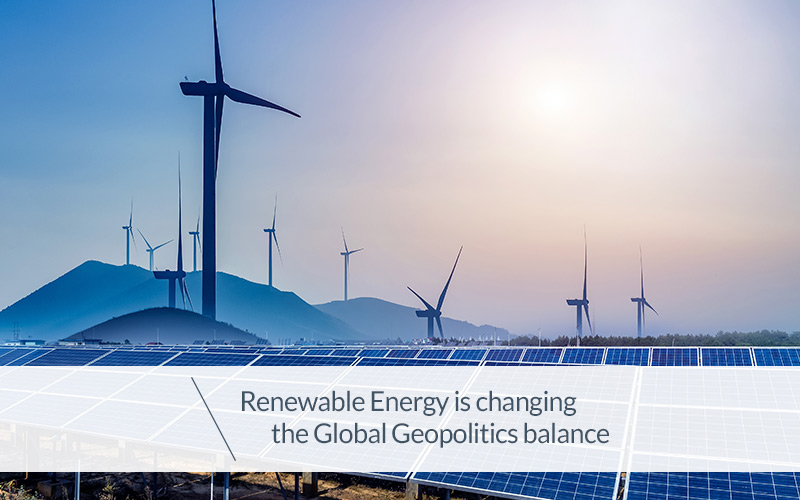
The global geopolitical balance, currently highly unstable, has long-since been influenced by factors associated with combustible fossil fuel, in particular petroleum. This has created considerable tension between countries.
The United Arab Emirates and Saudi Arabia, Venezuela, Angola, Yemen, Iraq and Libya, the Middle East, Russia, Nigeria, all countries rich in petroleum, gas and coal deposits, have dominated the world energy markets, and more besides.
In recent years, however, new technologies and increased focus on environmental sustainability (whilst not forgetting decreasing supplies of fossil fuels on our planet) have meant a scene shift towards a future increasingly linked to renewable energies.
What exactly does that mean? We discuss the implications in this article.
Renewable sources are literally limitless
As we know, not all nations possess petroleum, gas or coal deposits but every single country can access one or more renewable energy source.
Wind, sun, geothermic, biomass, hydroelectric are some of the many possible areas of investment, and one does not exclude the other, provided local conditions allow it.
Furthermore, each country could specialise in one or more technologies, depending on the geographical nature of the land, and specific demand.
Geopolitical scene shifting
The slow but continual undermining of the power of countries rich in fossil fuels, in favour of rapidly emerging renewable energy power sources, can only have major implications.
According to the report “A new world. Geopolitics of Energy Transformation” by the International Renewable Energy Agency, the transformation of energy will change energy politics as we know it, forever.
The analysis carried out suggests that this revolution will favour an increase in energy safety and growing energy independence for the majority of countries.
At the same time, whilst countries will develop renewable energies and increasingly integrate electrical networks between neighbouring countries, new interdependent relationships and business models will emerge.
The conflict associated with petroleum and gas may decrease, as may that related to strategic importance regards several maritime borders.
Emerging sectorial leaders
This energy transformation will create new sectorial leaders, due to high investment in renewable energies technology which will consolidate the power of several countries.
China, for example, has bettered their geopolitical powers by taking on a leading role in the race for clean energy, becoming the largest producer, exporter and installator of solar panels, wind turbines and electrical batteries and vehicles, across the world.
Countries which traditionally produce fossil fuels may suffer a decline in exports and in their influence at a global level unless they adapt their economies to new energies.



